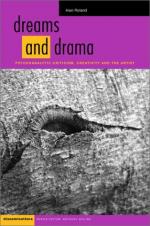|
This section contains 160 words (approx. 1 page at 300 words per page) |
Psychoanalysis is an analytic technique originated by Sigmund Freud (1856-1939), an Austrian neurologist. It has been altered by his students and their students, in turn, throughout the twentieth century. Psychoanalysis isatheoryofthewaythemindworks: (1) Sequences of thoughts are determined—they do not occur by chance; (2) Much of our thinking takes place out of awareness—it is unconscious and not easily recovered; (3) The experiences of early childhood, particularly those with important caretakers, continue to have an impact (often unconsciously) on our daily lives; (4) Feelings, both sexual and aggressive, are present at birth and affect behavior. The theory helps us understand something of the addicts' complex motivations and of their inner experience and behaviors.
Psychoanalysis is also a method: It attempts to understand mental processes by free association (following thoughts wherever they lead without selection or censoring) and by the analysis of dreams, fantasies, and behaviors. Psychoanalysts apply this method as a therapy or treatment for certain forms of mental disability.
See Also
<Bibliography
BRENNER, C. (1973). An elementary textbook ofpsycho-analysis. New York: International Universities Press.
|
This section contains 160 words (approx. 1 page at 300 words per page) |


